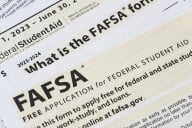You have /5 articles left.
Sign up for a free account or log in.
Last month, I attended a public meeting on the state of government-funded schools in one of South Africa’s most impoverished rural areas. Hosted by the Book Lounge, an independent bookshop in Cape Town, the event was so packed that people spilled out on to the pavement outside, where the discussion was relayed to those who couldn’t hear what was being said indoors.
Organised by the NGO Equal Education (EE), the purpose of the gathering was to report the experiences of a group of writers, academics, and activists who had taken part in EE’s Solidarity Visit to schools in the Eastern Cape province. EE has been campaigning for Basic Education Minister Angie Motshekga to publish a set of minimum norms and standards for school infrastructure. EE argues that without proper classrooms, furniture, toilets, and other amenities, it is impossible for pupils to access the same standards of education as those in better-off and better-run regions.
The delegates described what they had seen: schools without working, flushing toilets and hand basins; mud buildings on the point of collapse; classrooms so overcrowded it was impossible to move freely in them; and pupils without textbooks.
Pierre de Vos, Professor of Constitutional Law at the University of Cape Town, wrote:
We saw 132 grade 9 learners crammed into one classroom at Ntaphane Senior Secondary School, hardly a textbook in sight. At Nyagilizwe Senior Secondary School, overflowing toilets with broken doors… At Sampson Senior Primary School in the Libode District, our little ones get taught in mud huts and do not have the ‘luxury’ of toilet facilities at all (they have to go into the bushes to relieve themselves).
Brad Brockman, EE’s General Secretary, said:
Sindiwe Magona broke down after seeing the toilets at Nyangilizwe Senior Secondary School in Mthatha, and hearing and seeing girl learners at the school expose the pimples on their skin they have as a result of using the broken pit latrine toilets smeared with faeces.
Shortly after the Solidarity Visit, the Department of Basic Education released a report arguing that South Africa’s teachers do not have the knowledge and training to be able to teach the national curriculum.
In addition to this:
A recent report by the World Economic Forum revealed that South Africa’s maths and science education ranked second last in the world, while the 2011 Progress in International Reading Literacy Study (PIRLS), highlighted that most grade 5 learners in South Africa have not acquired basic literacy skills.
South African schools have a very high dropout rate. Last year 551,837 pupils wrote their final school examination, but this cohort of pupils began their education in 2001 as a group of 1,150,637. In other words, half of this group drifted out of school before completing grade 12.
This is all despite the fact that South Africa spends around 20% of its annual budget – and 6% of GDP – on education. There is a vast literature on why South Africa’s education system is in crisis, and I don’t want to rehearse the arguments here. The reasons for this predicament are many and complex – and not least the legacy of an apartheid system which systematically underfunded African children’s schooling.
There is a clutch of excellent schools – private and state-funded – which provide an exceptionally high quality of education. I and many of my colleagues attended those schools, and most of my students at my elite university are the products of these schools too. We are not necessarily cleverer than those pupils – most of whom are black and poor – who never finish school or who scrape their final exams, but we had the advantages of properly trained teachers, well maintained school buildings, enough desks and textbooks and computers, and, indeed, flushing toilets. We were set up to succeed.
In a recent column, Mondli Hlatswayo, a researcher at the University of Johannesburg, argues that ‘universities deliberately alienate and exclude the masses’ partly through their use of language. Most of South Africa’s universities are English-medium – the mother tongue of a minority of South Africans. He suggests that one way of helping more students from poor or working-class backgrounds to attend university would be ‘to uplift other [African] languages so that they can also be part of the humanities and both the social and natural sciences.’
I agree that South African universities need to think about their use of African languages more carefully, but I wonder if this is the best way of opening up access to tertiary education. Universities can’t, obviously, solve the crisis in primary and secondary education – and they have their own battles to fight – but it strikes me that if we’re serious about extending university education, then tinkering with language policy is not going to solve the fundamental problems which prevent pupils from completing their education, let alone entering university.
Stellenbosch, South Africa.
Sarah Emily Duff is an NRF Postdoctoral Research Fellow at Stellenbosch University, South Africa and is a regular contributor at University of Venus. She can be contacted at sarahemilyduff@gmail.com.








